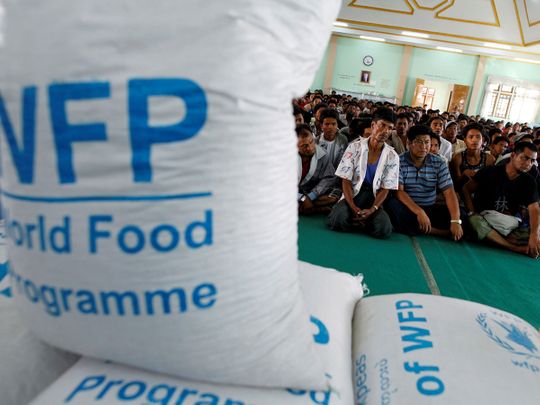
On October 9, the Norwegian Nobel Committee awarded the Nobel Peace Prize for 2020 to the World Food Programme (WFP). The move represents a global win for food security and a clear proof that the world acknowledges the importance of the issue. And it is about time, as the food crisis has escalated in recent years.
The World Food Summit of 1996 defined food security as a state when all people at all times have physical and economic access to sufficient, safe, and nutritious food to meet their dietary needs and food preferences for an active and healthy life. It is evident that the world is very far from achieving this goal.
According to the 2020 edition of The State of Food Security and Nutrition in the World (SOFI), a report produced jointly by WFP and other concerned international organisations, almost 690 million people went hungry in 2019. This represents an increase of 10 million on 2018 and nearly 60 million in five years, mostly caused by war and armed conflict. And the report forecasts that the COVID-19 outbreak could tip over 130 million more people into chronic hunger by end-2020.
The pandemic has put the global food supply chain to the test, and exposed gaps at every step — from production and processing to movement across countries — that we need to address if we want to be ready for the next worldwide emergency. Therefore, the topic of food security requires more attention now than ever before.
WFP is the world’s largest humanitarian organisation addressing the global food crisis, and the UN’s primary instrument for the implementation of the Sustainable Development Goal (SDG) 2: Zero Hunger. In 2019, it assisted close to 100 million people in 88 countries.
But fighting world hunger is a momentous task that WFP cannot tackle alone. In addition to global agencies such as the Food and Agriculture Organization of the United Nations (FAO), the International Fund for Agricultural Development (IFAD), and the United Nations Children’s Fund (UNICEF), governments across the globe must play a key role in this regard if we are to achieve SDG 2.
Here in the UAE, we realise the severity of the challenge at hand, therefore we have launched the National Food Security Strategy 2051 with the aim of achieving zero hunger by ensuring access to safe, nutritious, and sufficient food all year round.
In line with the strategy, we follow a multipronged approach to meeting the demand of our population for food. On the one hand, we are stepping up our efforts to enhance food security at home by supporting local farmers and exploring innovative cultivation methods that enable us to make the most of our resources and are suitable for our desert climate.
In this context, the Ministry of Climate Change and Environment (MOCCAE) encourages subsistence-level farmers to increase their production and become active contributors to national food security. It also provides local farmers with subsidised agricultural inputs at half the market price, integrated pest management solutions, and agricultural and veterinary extension services. And to help them access the market and increase their revenues, MOCCAE has signed agreements with major retailers, such as Union Coop, Carrefour, Aswaaq, and Al Maya Group, to stock local produce. The Ministry also organises and sponsors fairs and exhibitions where farmers can sell their products to consumers directly.
On the other hand, we are working to strengthen the international food supply chain. MOCCAE constantly explores new import markets with the aim of diversifying food sources and offering consumers in the UAE a wide variety of trusted and quality food products. In line with this priority, the Ministry facilitates the processes of import, export, and re-export of food products by increasing the capabilities of its border testing labs to maximise their efficiency while maintaining the highest standards of food safety.
Furthermore, the UAE understands the vital role of innovation in addressing food security challenges, therefore it regularly invites trailblazers from around the world to present their out-of-the-box ideas, with a commitment to helping translate the most effective and feasible solutions into reality. Through platforms such as the Zayed Sustainability Prize, the Climate Innovations Exchange (CLIX), and The CovHack, the country is making good on its promise.
However, our objectives extend beyond enhancing food security at home because international cooperation is the only efficient way of providing food to those who need it the most. We must work together to build resilient food systems, and leverage innovation to grow, process, distribute, and eat food in a more sustainable way. Because no matter how hungry the world is today, it is our collective duty to ensure that we do not deplete our natural resources and that we leave enough for future generations.
Dr Abdullah Belhaif Al Nuaimi is the UAE Minister of Climate Change and Environment








